Month: August 2021
International Youth Day 2021: SAAET Stories from Early Project Graduates!
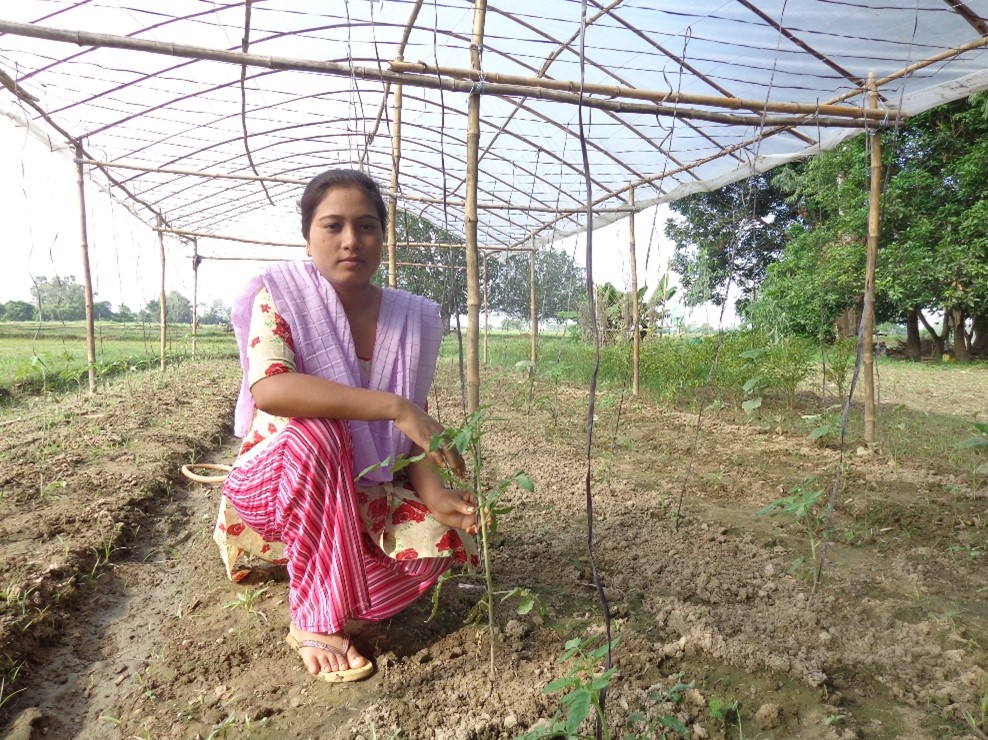
International Youth Day
International Youth Day occurs every year on August 12th. It’s a valuable chance created by the UN to focus on the biggest issues facing young people throughout the world. The theme in 2021 is “Transforming Food Systems: Youth Innovation for Human and Planetary Health.” As the world population grows and nations respond to climate change, sustainable food systems will become more important than ever. To achieve the necessary changes, the participation of young people is critical!
This International Youth Day is a great opportunity to share some of the earliest success stories from NYF’s new SAAET Project!
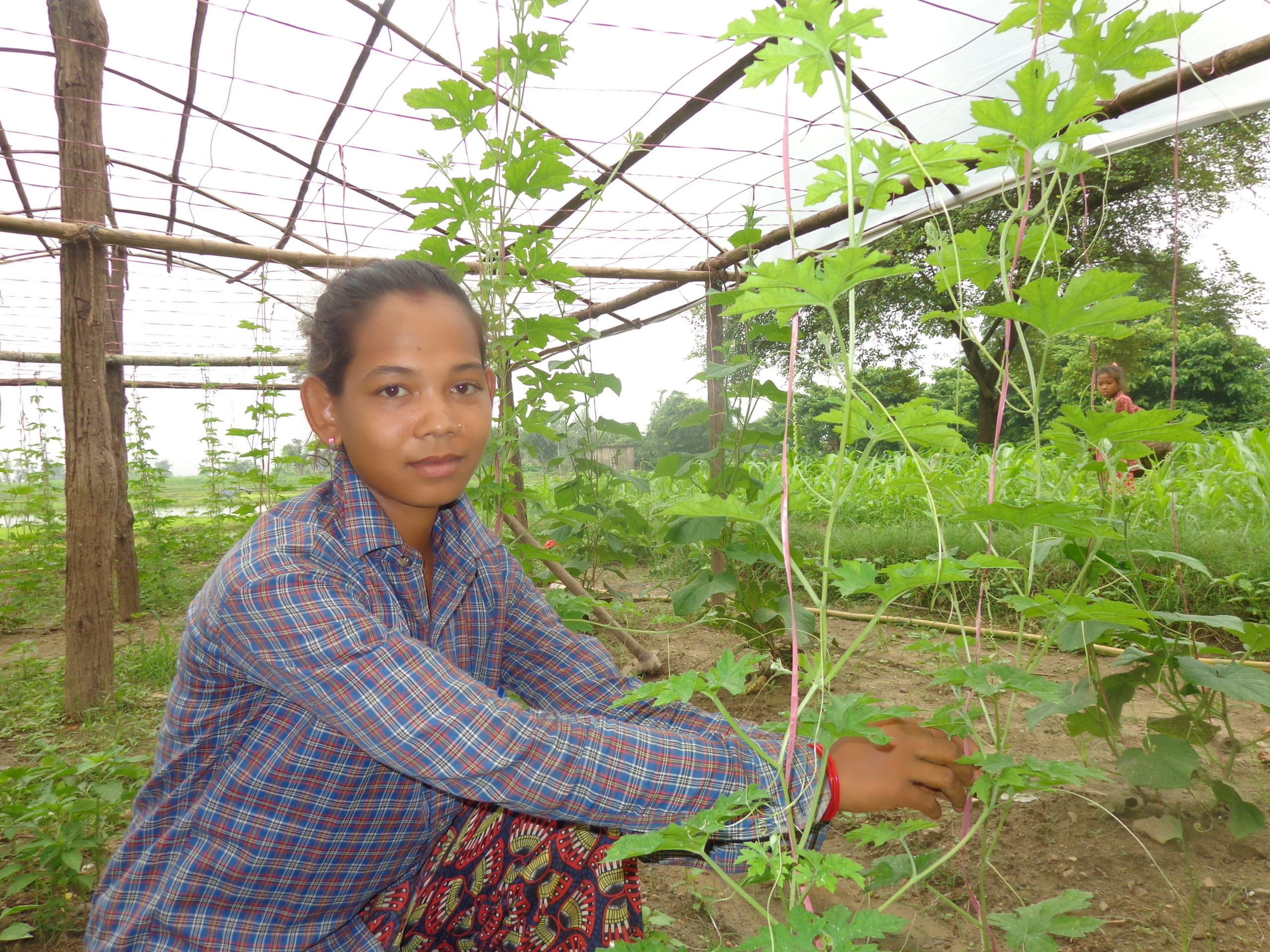
The SAAET Project
Saaet is Nepali for “an auspicious moment of starting a new journey” – and at NYF, it stands for Sustainable Agricultural and Entrepreneur Training.
This project tackles gender inequality, skills development, and food systems all at once. Designed especially with young women in mind, this course brings simplified greenhouse technology and up-to-date organic agricultural practices to individuals hoping to achieve financial success while staying within their home communities.
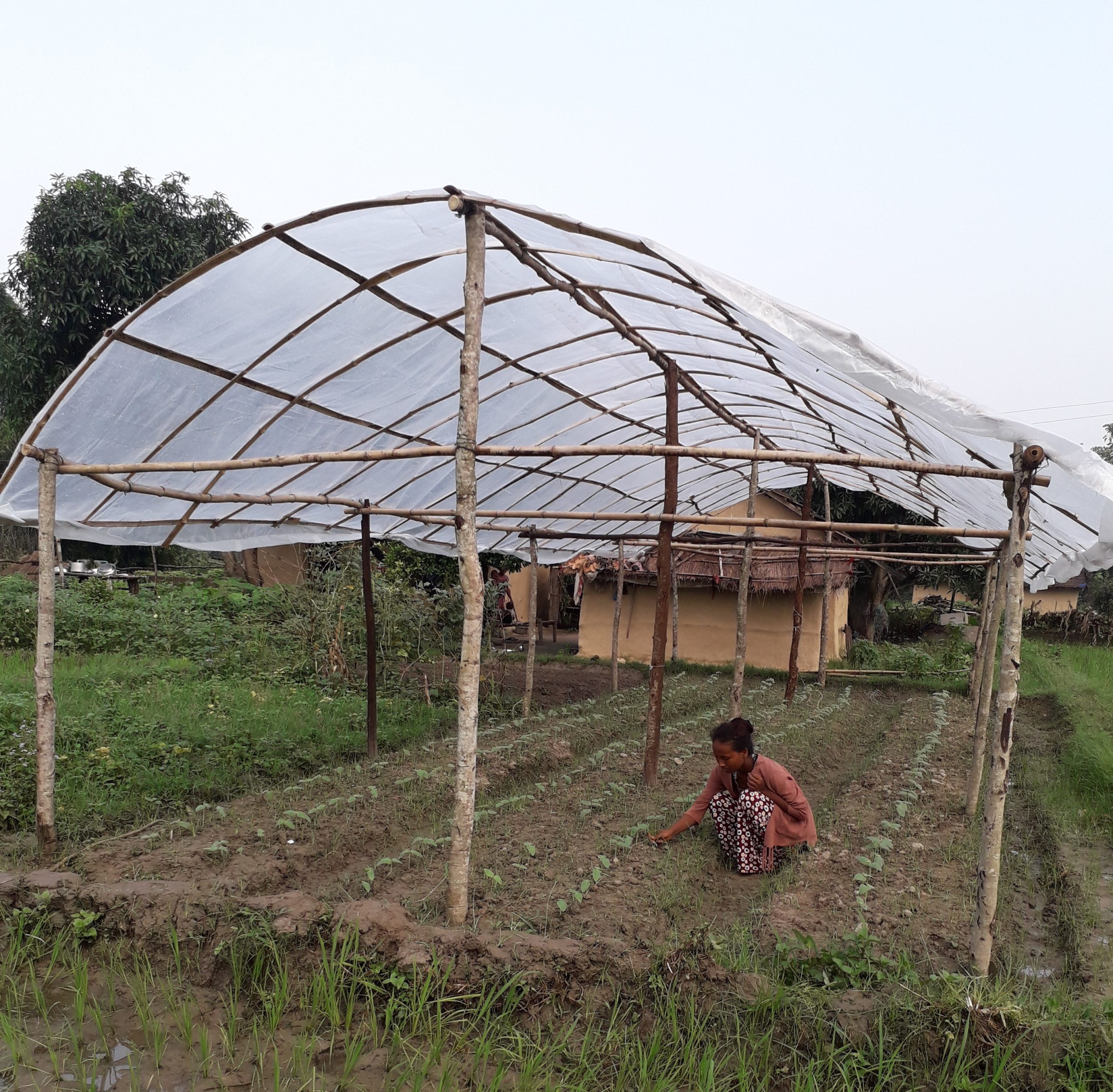
NYF’s Vocational Education and Career Counseling Program (VECC) offers multiple job readiness and vocational education options to Nepalese young people seeking career opportunities close to home. Those we help are experiencing many different kinds of barriers to economic success—but those most in need are usually young women.
The SAAET Project is just one part of NYF’s work to combat child marriage in Nepal, and part of our commitment to helping young women and girls find economic empowerment on their own terms.
Our first class of SAAET students were Freed Kamlaris from the Western Terai. Their training took place in March-April 2021—let’s see how they’re doing!
Sunita T.
When Sunita was only 13 years old, her father sent her to work as a kamlari far away from her home in Bardiya District. In exchange for her labor, the family was promised two things: they would be allowed a large enough plot of leased land to feed the family year-round, and Sunita would be sent to school.
As so often happened, the family broke their promise about Sunita’s education. She worked as a kamlari for 5 years, until she was 18 years old. NYF knew about her situation from surveys conducted in the village, and we had to threaten legal action to finally bring her home.
Sunita is 26 years old now, and the memories of her days as a kamlari are still fresh and painful.
She worked extremely long hours, from early in the morning to very late at night, locked in the house doing cooking, cleaning, childcare, and any other work that came up. Sunita hopes no child ever has to suffer that way again.
Once rescued, Sunita enrolled in grade 6 and managed to complete her studies through grade 10. In Nepal, all students must take the notorious “Iron Gate” exam (the Secondary Education Examination) at the end of grade 10. This extremely rigorous test determines who can move forward. Sunita was unable to pass the Iron Gate, so her academic studies ended there.
She got married in her early 20s and, through NYF support, took an 18-month vocational course in agriculture. Sunita and her husband decided they preferred the idea of farming over the notion of working for someone else, so they applied for a microloan from their local co-operative and started banana farming. Soon they added vegetables, chickens, and pigs. Sunita and her husband have been happy to be able to pay back the co-operative loan, and they’re paying the lease on their land through their own earnings now.
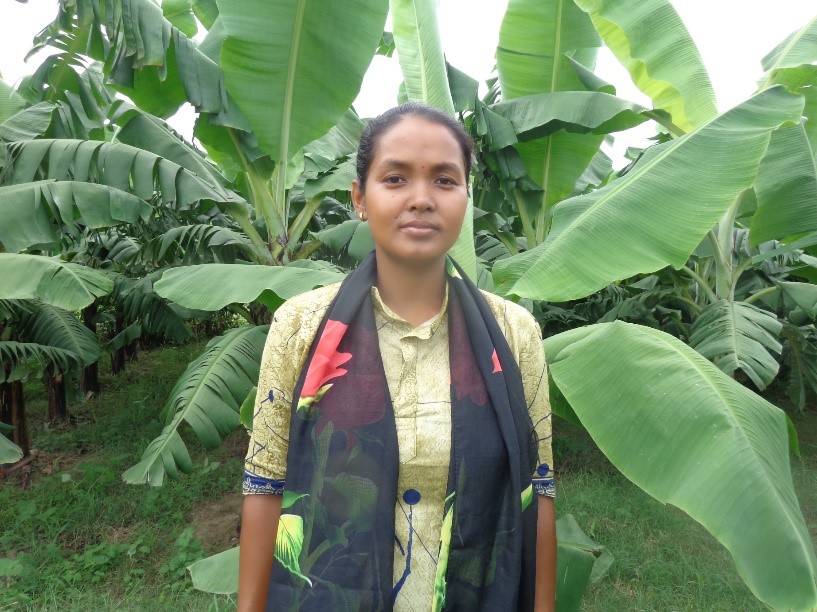
But Sunita hopes to be able to own the land outright and expand the business further.
That’s why she was so happy to join the first class of the SAAET Project. The material taught in the class expanded Sunita’s existing knowledge of best agricultural practices and gave her great new ideas for her farm. She also learned helpful business practices!
When she returned home, the spring COVID outbreak was just hitting the Western Terai, and shutdowns made accessing building materials more difficult than expected. But Sunita was still able to start working on her own new greenhouse, which will allow her even more crop flexibility. She is already harvesting her first greenhouse crops, and she’s looking forward to being able to continue growing vegetables through the winter months. Sunita and her husband are hoping their farm will become a model for other farmers in the region.
“Dhanyabad, NYF!” she says. “I am very grateful for the invaluable support I have received from NYF which has transformed my life beyond my imagination.”
Lila C.
When Lila was born, her entire family was bonded in a practice called Kamaiya. Nepal abolished the Kamaiya system in 2000, freeing the family from this exploitative practice. But without much government support for families like Lila’s, they soon needed access to farmland they could only get by making Lila a kamlari for their landlord. (Kamlari was the last remaining piece of the old Kamaiya system.)
“My landlords did not send me to school, but I missed going to school badly. I was studying in grade 4 when I had to become a kamlari,” Lila says. “I had to sacrifice my education just for my family to be able to get two decent meals a day. There was no way the landlord would give us the land for farming if I refused to work.” Lila was ten years old and carrying the threat of her whole family’s starvation on her shoulders.
As a kamlari, “I had to do all the work from cooking, cleaning and looking after the landlord’s children, to cutting and collecting fodder for the cattle,” she recalls. “If I was ever late to come home or late for work, I would be scolded badly.”
One year into her time in bondage, Lila learned about an anti-kamlari campaign in her village. “I feel so lucky that I did not have to work as a kamlari as long as so many of my friends did,” Lila says. NYF had been collecting the names of known kamlari girls, and Lila’s name had appeared on these lists. “I was worried I wouldn’t be able to go to school after returning home, but on the day of my rescue, I heard that the same organization would be sending me to school, too. I felt so happy. And I suddenly felt so relieved and light at heart because I would not have to bear the anger and scolding from the landlords anymore.”
Lila studied all the way through 12th grade and then completed an 18-month agricultural science course on an NYF scholarship.
She and several other freed girls established their local co-operative to help their community grow its economic power, and Lila helped her family start up a vegetable farm that could feed them year-round and even bring in up to $60 a month.
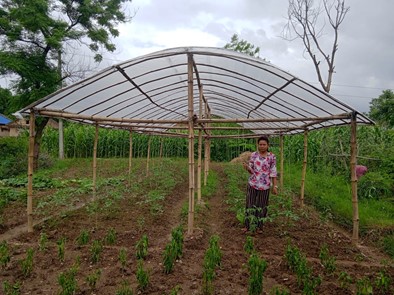
Lila got her greenhouse started right away when she returned home from the SAAET training. Her family is already seeing the benefits of the program on their diet and on their ability to bring in extra cash! She is looking forward to adding in the drip irrigation system soon, and is planning her strategies for fall and winter crops.
Now, at age 26, Lila knew she needed a bit more specialized knowledge to take the family farm from subsistence agriculture to a fully-fledged business. She was thrilled to hear about the SAAET Project.
“During the training I learnt about increasing production by growing vegetables throughout the year using more efficient tools and techniques,” she explains. “I also learnt about organic farming and producing organic pesticides by myself. NYF not only provided the skills but also a start-up fund for us to build a greenhouse. With the money and the skills, I and my family have built a greenhouse near our house and have already started vegetable farming. I am confident that we can produce far more than before and increase our income. Gradually we plan to expand greenhouse farming and establish a successful business.”
Arati T.
Arati was ten years old when her father sold her off as a kamlari in a different village. “Even now, I always get sad and wonder what made my father to sell me as a kamlari,” Arati says. “I try and console myself that it was not entirely his fault alone, and that he was a victim of the oppression and the ill practice of slavery of the Tharu people.”
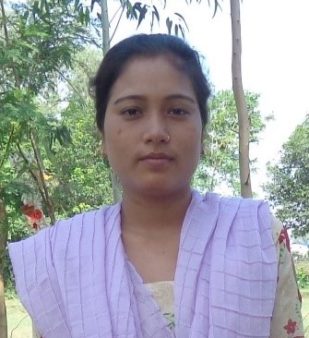
Memories of her kamlari years are painful and difficult for Arati.
“My parents had sent me as a kamlari on the condition that I should be sent to school. The landlords therefore admitted me in school, but I was able to go to school only after finishing all the work at home. I had to wake up in the dark hours before four o’clock in the morning and start my chores. I looked after the landlord’s children, cooked, cleaned, did the dishes, and all the other chores around the home. The landlords would get very angry if I made any mistake and scolded me constantly.” Arati takes some faint consolation in the fact that her landlords did not beat her.
“I was desperately looking for a release from this condition,” Arati recalls. “I wanted to be free like other children and go to school like them.”
After three years, a massive anti-kamlari campaign took hold in Arati’s village and NYF rescued her from bondage by NYF. “I felt very lucky that I got this life changing opportunity,” she says, “and I pursued my studies seriously.”
Arati recently completed the 12th grade. During her studies, she was part of a group of freed girls who established a local co-operative for savings and credit. She’s a proud contributing member of this co-op.
Back in 2018, Arati and her family acquired a plot of land to start a vegetable farm—but they have not managed to run it in a systematic, commercial manner. Arati signed up right away when she heard about the SAAET Project, knowing the training would make a huge difference.

“During the training we (21 girls including me) learnt a lot about using more advanced tools and technology for greenhouse farming, and about adopting agriculture as an income-generating enterprise.
After I returned home from training, I have built a greenhouse and started vegetable farming with the help of my family. I now have the knowledge about both seasonal and off-season farming, which will enable us to produce vegetables throughout the year. I am confident that by using the knowledge and skill I acquired from the training, we can easily increase the production and income by as much as three times than what we are able to do now. My parents are also very happy and proud of me and the work we are doing as a family.”
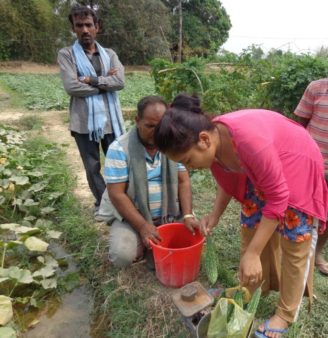
Those in Arati’s village are already spreading the word that she has vegetables to sell! Her farm, and others like it, will make an enormous difference in the health of the surrounding communities.
Only the Beginning
The SAAET Project has developed organically as NYF has responded to the pandemic—and we are enthusiastic about developing it further. This International Youth Day, we are so proud to be helping communities of young people pull their communities forward using new innovations and skills.
As Nepal’s economy heals from the COVID-19 pandemic’s impacts, young people in Nepal will need job preparedness training and career education more than ever.
To help us continue offering the SAAET Project and other vocational training programs, please donate today, and share our message on social media!
(For an even greater future impact, consider celebrating National Make a Will Month throughout August 2021 by joining our Legacy Circle!)
Make a Will Month – Opportunities for Impact through NYF’s Legacy Circle!
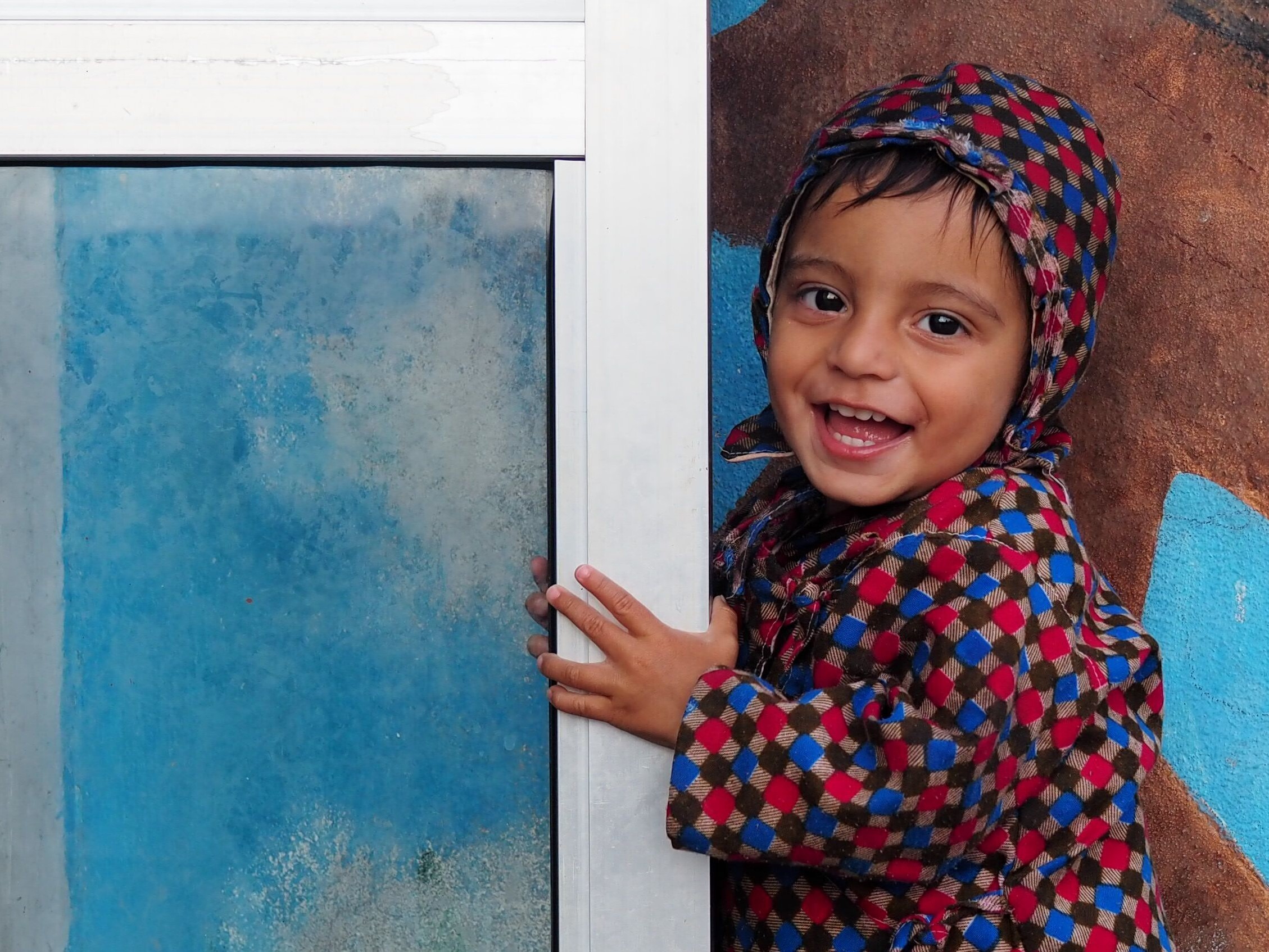
In 2021, for the very first time, 18-34-year-olds were more likely to have a will than 35-54-year-olds. Nearly 27% of young adults have prepared a will, compared to only 22.5% of those between 35 and 54.
Make a Will Month occurs every August. As the summer starts to wind down, this is a great opportunity to think about long-term plans. Your estate plan can have a positive impact on your loved ones and the causes you believe in most.
The Legacy Circle
Bequests and other planned gifts make an incredible difference for nonprofits like Nepal Youth Foundation. These generous remembrances help bolster organizations like ours through unexpected disasters like earthquakes and pandemics. They truly allow us to maximize impact for the children in our care.
These special donors mean the world to the NYF team. It is a profound honor to be included in a long-time supporter’s estate planning, and a joy to know that our programs can continue providing Education, Health, Shelter and Freedom for children in Nepal for years to come!
Members of NYF’s Legacy Circle have helped transform the lives of thousands of children through educational scholarships, family support, malnutrition interventions, psychological counseling, job-readiness training, emergency relief, and much more.
Many of the children served are enthusiastic supporters of their communities in adulthood. We are only beginning to see the incredible impact of this work.
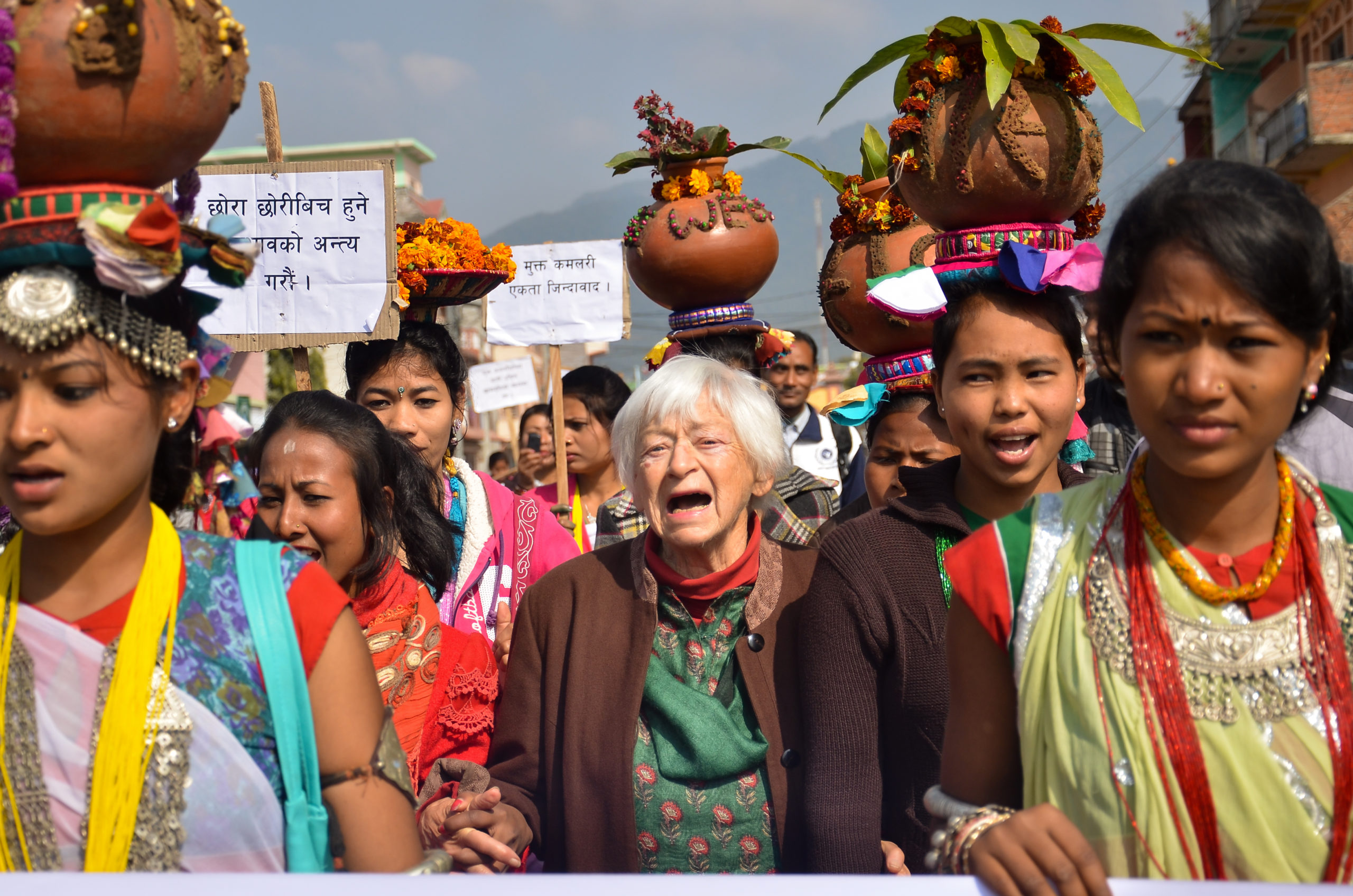
The Legacy Circle is NYF’s way of saying Thank You, to those who remember us in their estate planning.
All you need to do is let us know you’ve included NYF in your will or other plans. There is no minimum bequest required to become part of this special group.
In 2021, the NYF team is refining what membership in the Legacy Circle means. We will be recommitting ourselves to show our appreciation. A description of specific gifts of thanks will be coming soon.
But for Make a Will Month, we want to encourage each and every one of our supporters and friends to take a moment to consider your estate planning—not just for NYF, but for yourself and for your loved ones.
Do You Have an Estate Plan?
Did you know that 70% of American adults do not have an up-to-date will? According to a 2021 poll by Caring.com, only 44% of American adults over 55 years of age have prepared this valuable document. Common reasons for this include:
“I haven’t gotten around to it.”
“I don’t have enough assets to leave anyone.”
“It’s too expensive and complicated to set up.”
“I don’t know how to get a will or living trust.”
In years past, the process of creating a will felt daunting and complicated—not to mention financially draining. But the estate planning process isn’t like that anymore.
Online resources like FreeWill.com provide all the help many individuals need to create a free, simple, legally-binding will. Using easy-to-follow instructions based on your state, this resource makes the process simple and accessible to those of any age. In some cases, you won’t even need to find a notary.
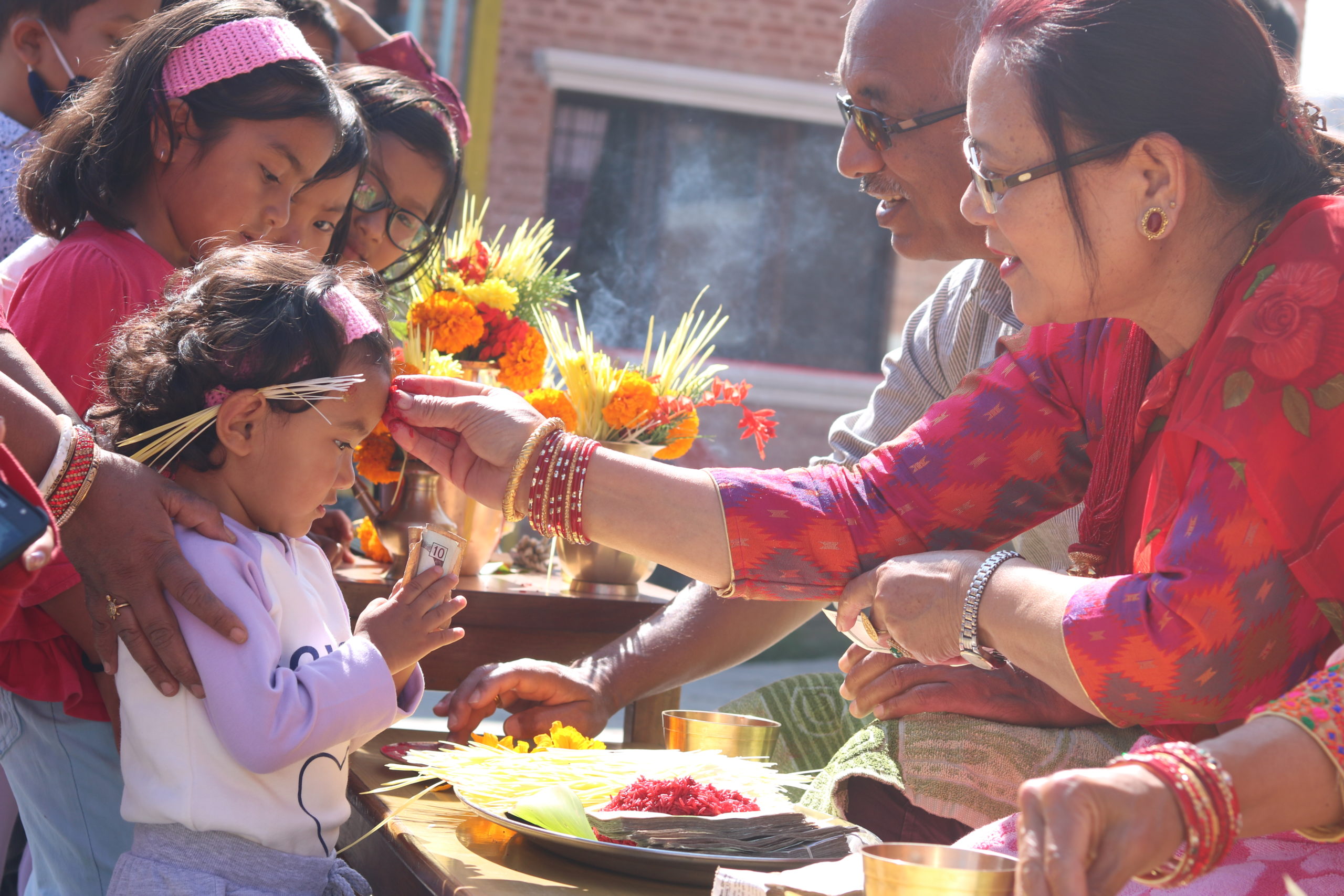
Why Create an Estate Plan?
Estate planning isn’t just about money. It’s about love—and peace of mind.
An up-to-date estate plan saves time, money, and stress for your loved ones during a time of great emotional upheaval. It also lowers the potential for family disputes by making your wishes clear. When someone passes away without creating a will, their estate is distributed based on the laws in your state. This process can be slow and expensive—and your assets will be frozen throughout the process.
Your will is a place for you to identify the trusted person who will carry out your wishes, whether your estate is very large and complicated, or very small.
When you sit down to consider it, almost no one has an estate so small that there is no room for confusion. If you have minor children, your estate plan is a place to nominate a preferred guardian for them. You may even select a guardian for your pets and leave funds to provide for their care.

Many people choose to detail their funeral wishes in their estate plans. Though these are not legally binding, this is another opportunity to ease the minds of your loved ones, who may otherwise worry about whether you would have approved of their ways of commemorating your life.
In your estate plan you will decide, in detail, how to distribute your assets and property. This includes not only items like stocks, homes, vehicles, cash, and jewelry, but digital assets as well—the copyright to your travel blog, for example. When it comes to sentimental items, many individuals gain peace of mind by identifying the beneficiary who would most cherish the item. Recipients of these bequests often feel comfort at being remembered so specifically.
Including a nonprofit as a beneficiary (leaving an “outright” gift) can be as simple as adding a single sentence or amendment to your will.
Popular ways of making these planned gifts include leaving a specific amount, leaving a percentage of a donor’s total wealth, or designating the remainder of a donor’s estate after other bequests have been paid.
Leaving part of your estate to a nonprofit is a great way to reduce estate taxes for your heirs.
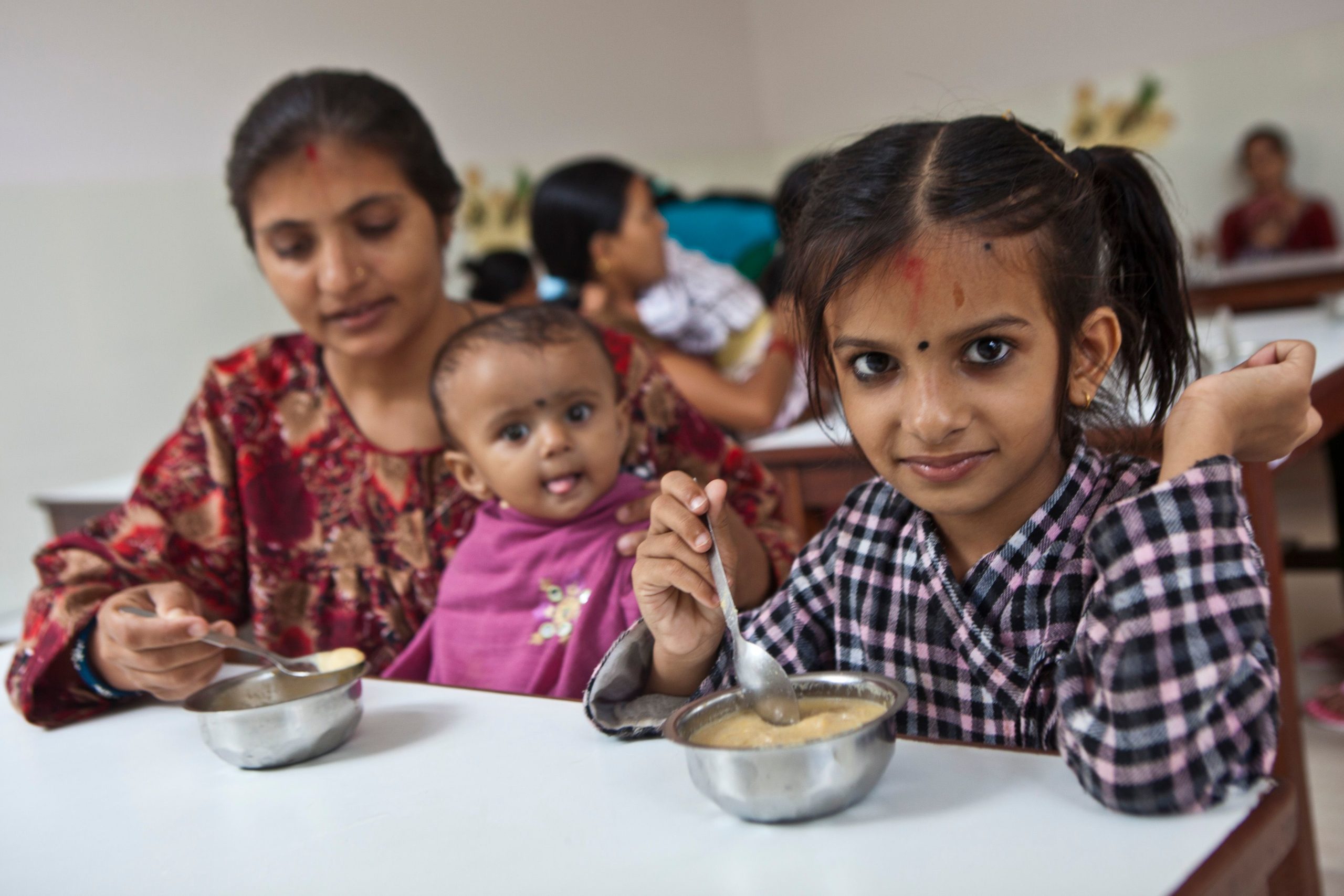
Planned Giving
Planned giving can be as unique as you are—and often includes options many individuals don’t think of immediately.
For example, if you leave what remains of your Retirement Plan (401(k) or IRA) to a nonprofit rather than an individual, you avoid capital gains tax and estate taxes.
Designating NYF as the beneficiary of all or part of a Life Insurance Policy that is no longer needed for its original purpose can be a thoughtful donation—and may also provide your heirs with substantial tax benefits.
It’s easy to do: simply ask your retirement account manager or life insurance agent for a beneficiary designation form and name the Nepal Youth Foundation as the beneficiary.
Another excellent planned gift is real estate.
Taxes and other costs associated with receiving well-intentioned gifts of real estate can sometimes be overwhelming for heirs. Leaving vacation homes or other such property to a nonprofit instead can spare loved ones from unexpected tax liabilities further down the road.
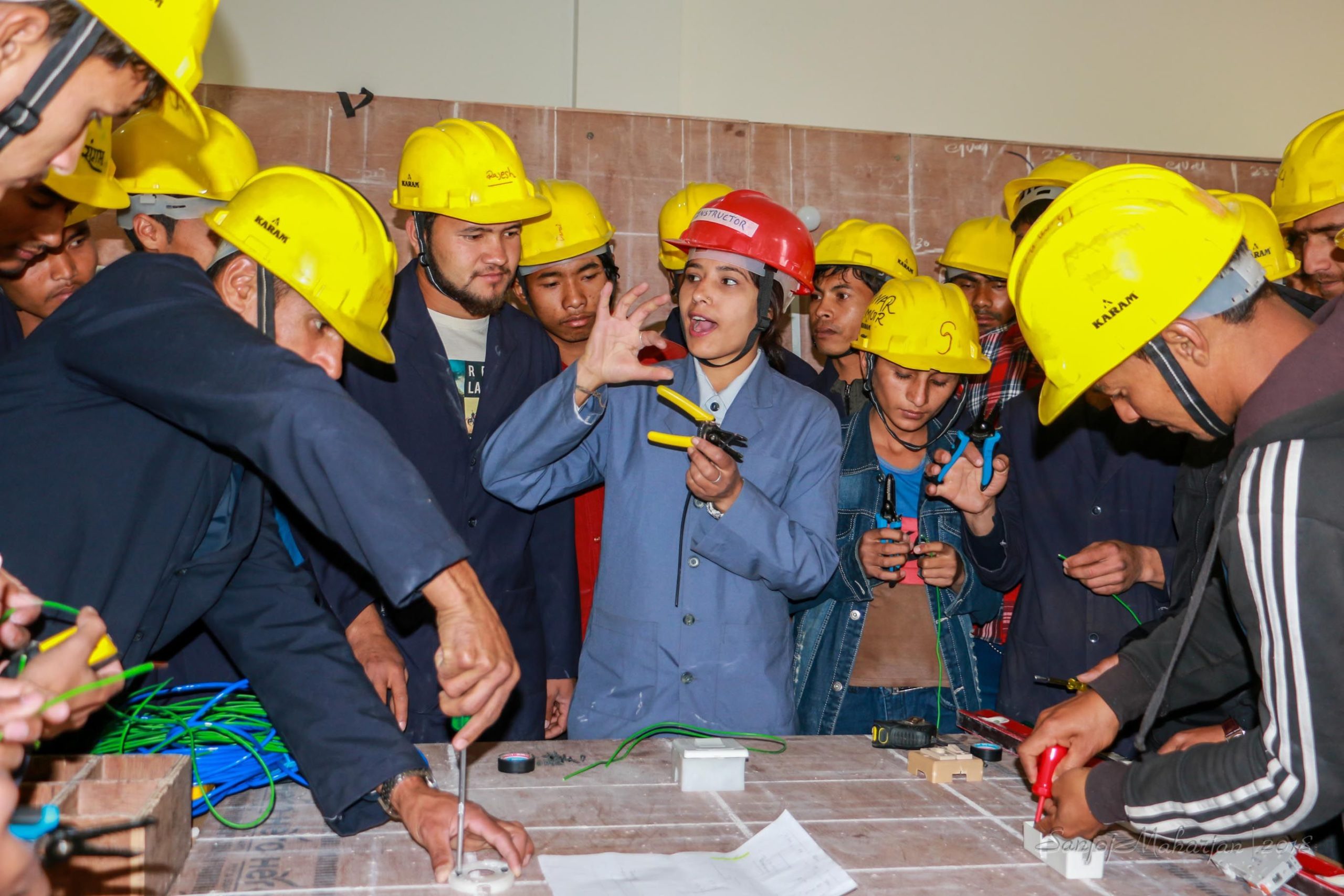
Those with more complex estates may benefit from Charitable Annuities and Trusts. To create a charitable trust, you will benefit from a financial representative. But these types of gifts can be incredibly beneficial to you during your lifetime, to your heirs, and to the nonprofit organization(s) you choose to receive benefits.
Creating a charitable trust is a useful, multipronged approach to leaving a legacy. It allows you to set aside money for both a charity and your beneficiaries, realize specific tax advantages—and have a say over how and when any income should be distributed while you are still alive.
Celebrate Make A Will Month by Starting or Reviewing Your Estate Plans Today!
Having an up-to-date will is important whether you are 18 or 108—not only for yourself, but for your loved ones.
Whether you are starting your very first will or simply reviewing your existing plan, we hope you set aside time during the month of August to consider these impactful plans. FreeWill.com is an excellent, nonprofit-friendly place to start!
And if you are interested in learning more about joining NYF’s Legacy Circle or in identifying the best options for your planned gift, please let us know right away by calling 415-331-8585 or emailing info@nepalyouthfoundation.org. Though we are unable to officially give personal legal or tax advice, we are prepared to share ideas you may bring to your attorney, tax advisor, and trusted family members.
We are always happy to discuss the most impactful ways our community can join us in providing Education, Health, Shelter, and Freedom to children in Nepal for years to come.
For more information, please visit our following pages: Planning Giving In Wills, Planning Giving with Retirement Insurance Funds, Planned Giving By Charitable Trusts.
